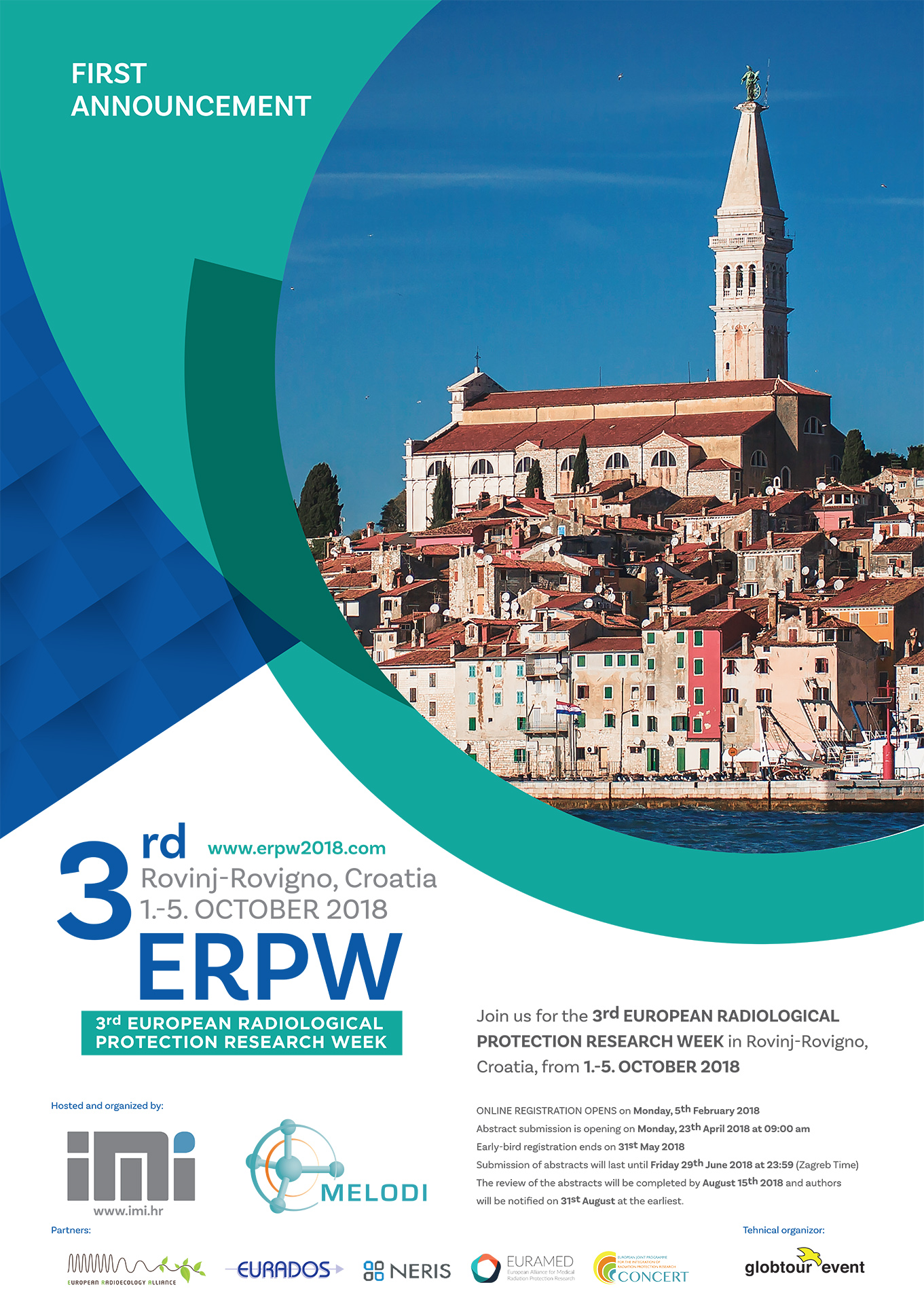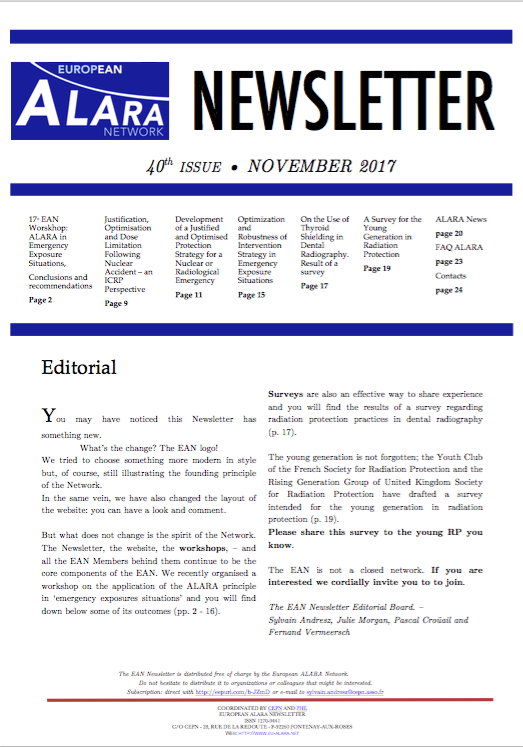- Details
-
Category: News
-
Published: Monday, 12 March 2018 16:50
A common ALLIANCE-NERIS Workshop was held in Munich (BfS premises) the last 28th and 29th of March. Named 'Towards improving radiological assessments and management: Big data sets, spatial distribution and source to sink modelling’, this common workshop considered a joint research priorities arising from the ALLIANCE and NERIS recent gaps analyses. And so, the objective was to establish a consensus on the questions still to be addressed and to recommend future research priorities. The specific objective of the workshop was to address the spatial redistribution of radionuclides, focusing on water- and solid-mediated fluxes of radionuclides from the source to the ocean. The workshop explored how to develop a holistic understanding of key processes to improve radiological impact assessment and management. The workshop also addressed issues around using large volumes of possibly heterogeneous data and combining model predictions with monitoring results in an optimized way.
The detailed programme of the workshop is available here.
The different powerpoint presentations can be downloaded
archive
here
(18.01 MB)
.
Note that a statement paper is currently on progress and aims to play a role for inspiring responses to the EURATOM Call as it is described in the Work Programme 2018 - NFRP-8.
- Details
-
Category: News
-
Published: Thursday, 15 February 2018 10:00
 We are pleased to inform that the 3rd European Radiological Protection Research Week of the 5 European research platforms
We are pleased to inform that the 3rd European Radiological Protection Research Week of the 5 European research platforms
(ALLIANCE, EURADOS, EURAMED, MELODI and NERIS) will be held in Rovinj (Croatia) between 1-5 October 2018.
Online registration process is ready to use, so make sure to register by 31st May 2018 to benefit from the early bird rate.
For more and detailed information including visits and side events, please visit the official conference website: https://erpw2018.com
- Details
-
Category: News
-
Published: Thursday, 18 January 2018 18:18

23rd-24th April 2018
The first workshop of the Eurpean Project CONFIDENCE will be held in Dublin the 23rd and 24th April 2018, just before the 4th NERIS Workshop.
Please note that on 25th April (9:30-12:30), the two European projects CONFIDENCE and TERRITORIES will organise a joint meeting to deal with the longer term consequences of an emergency and so share the results of their ongoing research works.
For further information (registration, agenda, venue, etc.) please visit the CONFIDENCE Website.
- Details
-
Category: News
-
Published: Thursday, 11 January 2018 17:53
20th February 2018
The European Radiation Protection Research Platforms MELODI, EURADOS, NERIS, ALLIANCE and EURAMED have jointly planned an open information and networking day related to the EURATOM Call NFRP-2018-8 last February 20th, 2018, in Munich.
As a result of this meeting, you can download here the different gap analyses of the European Platforms as well as the joint research topics that have been identified.
Please note that the upcoming NERIS Workshop (25-27 April 2018 in Dublin) will be the occasion to continue the discussions, as the last session of the workshop will be dedicated to the CONCERT Joint Roadmap and all the European Platforms have been invited to contribute to this session. So do not wait to sign up to the 4th NERIS Workshop!

- Details
-
Category: News
-
Published: Thursday, 16 November 2017 13:44

You can access here to the 40th issue of the European ALARA Network Newsletter which deals notably with the Conclusions and Recommendations from the EAN-NERIS Workshop (Lisbon, May 2017) dedicated on the application of ALARA in emergency exposure situations.


 We are pleased to inform that the 3rd European Radiological Protection Research Week of the 5 European research platforms
We are pleased to inform that the 3rd European Radiological Protection Research Week of the 5 European research platforms

